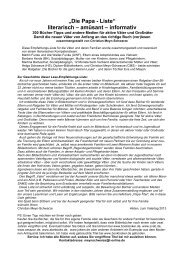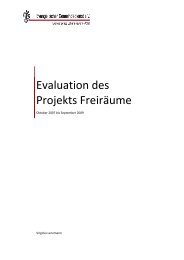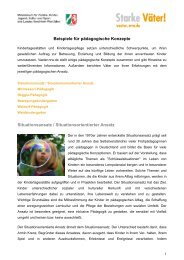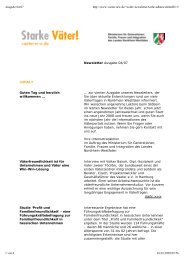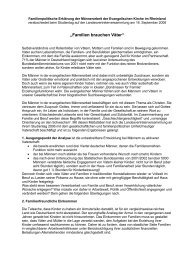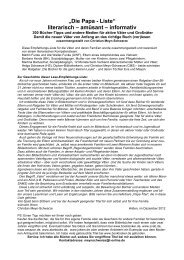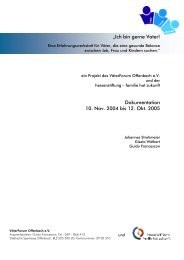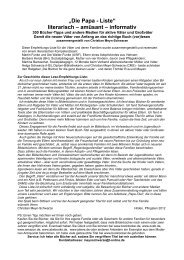LIBRARY
LIBRARY
LIBRARY
- No tags were found...
You also want an ePaper? Increase the reach of your titles
YUMPU automatically turns print PDFs into web optimized ePapers that Google loves.
And they’re getting close.Researchers at Eastern VirginiaMedical School are approachingsome major breakthroughs in theirresearch, from finding ways to detectcancer before symptoms occur, tocuring diabetes. Employing some of thenation’s most renowned scientists, EVMS hasbecome a leader in medical research.Here are five medical discoveries being uncoveredat EVMS. As research moves from the scientist in the lab tothe physician at the bedside, one of these breakthroughs couldsoon change your life.1TREATING POST-TRAUMATICSTRESS DISORDER WITH SLEEPEvery year, 60 million Americans experience insomnia,but for those suffering from post-traumatic stress disorder(PTSD), psychopathology or anxiety disorders, getting a goodnight’s sleep is even harder.Larry D. Sanford, PhD, associate professor of pathologyand anatomy, is researching how sleep and stress interact, withthe hope of providing solace to those suffering from stressdisorders and restless nights.“One of the most exciting things we’re studying rightnow is controllable and uncontrollable stress,” Dr. Sanfordsays. “We’re trying to model the processes by whichuncontrollable and controllable stress caninfluence changes in behavior.”Uncontrollable stressors are thosewhich we can’t control, such as atornado or losing a job to companydownsizing. A controllable stressoris any stress you can control orterminate by your own actions.Using an animal model, Dr. Sanford’s team discovered thatthe subjects who could control their stress showed a significantincrease in rapid-eye movement (REM) sleep, the deepest andmost important stage of sleep. In contrast, the subjects whocouldn’t control their stress showed significant decreases inREM sleep.Dr. Sanford believes the REM sleep that occurs afterwe experience stress helps us better cope with stress in thefuture. He is working with the Department of Psychiatryand Behavioral Sciences at EVMS to develop ways to test hisresearch findings on patients with PTSD.According to the Department of Veterans Affairs, about5.2 million adults have PTSD during a given year. Between11 and 20 percent of veterans of the Iraq and Afghanistanwars suffer from PTSD, while 30 percent of Vietnam Warveterans are affected. One of the primary symptoms of PTSDis sleeplessness, sometimes coupled with nightmares. MostPTSD treatment is limited to behavioral therapy, but Dr.Sanford’s research could reveal a better way to help patientscope with the troubling stress disorder.“If REM sleep facilitates coping, maybe we can take patientswith PTSD and do things that may enable them to havemore REM sleep and facilitate treatment,” says Dr. Sanford.“If you know someone is going into a stressful situation, youmay be able to do things to change their sleep architecturepreemptively as opposed to after.”2WHAT PROTEINS TELL USABOUT CANCERNo matter how treatable, cancer of any kind is a devastatingdiagnosis. However, researchers at EVMS are discovering newdiagnostic tools that could lead to earlier cancer detection andmore effective treatment.At the core of the research is a science called proteomics, thestudy of proteins. It’s estimated that there are between one andtwo million proteins in the human body, forming theskin, hair, muscles, ligaments and cartilage thatgive us shape, and the enzymes, hormones,antibodies and hemoglobin necessaryfor life.O. John Semmes, PhD, isleading a multi-disciplinary teamof researchers at the Leroy T.Canoles Jr. Cancer ResearchCenter to study how proteins inthe body mutate when they areaffected by cancer. The changes orinconsistencies in a protein act as a30 FALL 2010 WWW.EVMS.EDUMEDICAL BREAKTHROUGHS



